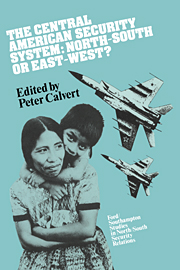Book contents
- Frontmatter
- Contents
- Notes on contributors
- Preface
- Map of the Caribbean Basin area
- Part I The problem at the interstate level
- Part II The problem at the state level
- 5 Cuba: a client state
- 6 Nicaraguan security perceptions
- 7 The security of small Caribbean states: a case-study of Jamaican experiences in the 1970s
- 8 United States' security perceptions
- Part III Solutions
- Index
5 - Cuba: a client state
Published online by Cambridge University Press: 15 October 2009
- Frontmatter
- Contents
- Notes on contributors
- Preface
- Map of the Caribbean Basin area
- Part I The problem at the interstate level
- Part II The problem at the state level
- 5 Cuba: a client state
- 6 Nicaraguan security perceptions
- 7 The security of small Caribbean states: a case-study of Jamaican experiences in the 1970s
- 8 United States' security perceptions
- Part III Solutions
- Index
Summary
A REVOLUTIONARY STATE
No one outside Cuba foresaw the Revolution or had the remotest idea of the influence which this hitherto despised and neglected island would exert on world affairs. Not even that great prophet Simon Bolívar, seen by Cubans as their precursor, anticipated this future. For him Panama would be the centre of the world and, with its strategic and geographical position, it was to become so – at least for the United States – but for Panama itself its global impact is limited to flags of convenience. What brought Cuba from the backwaters of colonial obscurity was the brutal crop of sugar which was to make it the richest colony for its size possessed by any colonial power, richer and more advanced than Spain itself, which could only bequeath to its colony a war of independence which was to make Cuba unique among Spain's ex-possessions by developing a sense of nationality before the achievement of statehood. Sugar wealth created a vibrant culture and an intelligentsia whose marginalization in the frustrated years of pseudo-independence was to give added strength to a sense of redemptive nationalism. With hindsight it can now be seen how the unique trajectory of Cuban history inculcated a belief in a messianic destiny deriving from the idea of a permanent revolution with its origins as far back as the outbreak of the war of independence in 1868.
- Type
- Chapter
- Information
- The Central American Security SystemNorth-South or East-West?, pp. 75 - 91Publisher: Cambridge University PressPrint publication year: 1988



